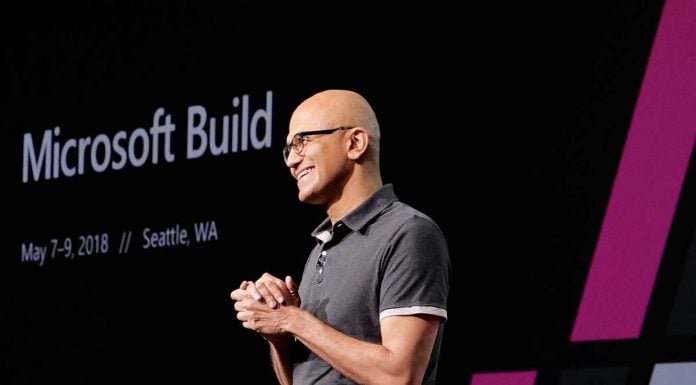Days ahead of its developer conference – Microsoft Build 2019 – Microsoft Corp announced a series of new Azure services and developer technologies aimed at giving advanced capabilities spanning across AI, mixed reality, IoT and blockchain to developers. The company will share these and additional advancements in hybrid cloud and edge computing at its Microsoft Build conference.
“It's an incredible time to be a developer. From building AI and mixed reality into apps to leveraging blockchain for solving commercial business problems, developers' skillsets and impact are growing rapidly,” said Scott Guthrie, executive vice president, Microsoft Cloud and AI Group.
“Today we're delivering innovative Azure services for developers to build the next generation of apps. With 95% of Fortune 500 customers running on Azure, these innovations can have far-reaching impact,” Guthrie said.
Microsoft Build 2019
Microsoft is launching a new Cognitive Services category, called “Decision,” that it says will deliver users a specific recommendation for more informed and efficient decision-making. This category includes Content Moderator, the recently announced Anomaly Detector, and a new service called Personalizer, which uses reinforcement learning to provide users with a specific recommendation to enable quick and informed decision-making.
In addition, the company is bringing AI to Azure Search with the general availability of the cognitive search capability, enabling customers to apply Cognitive Services algorithms to extract new insights from their structured and unstructured content. Microsoft will be previewing a new capability that enables developers to store AI insights gained from cognitive search, making it easier to create knowledge-rich experiences leveraging Power BI visualizations or machine learning models.
Also, to enable extremely low latency and cost-effective inferencing, Microsoft is announcing the general availability of hardware-accelerated models that run on FPGAs, as well as ONNX Runtime support for NVIDIA TensorRT and Intel nGraph for high-speed inferencing on NVIDIA and Intel chipsets.
Focus on Microsoft Azure
Microsoft introduced Azure SQL Database Edge to support the spectrum of edge compute needs. A SQL engine optimized for lower compute requirements with built-in AI, the product combines data streaming with in-database machine learning and graph capabilities to enable intelligence on the edge. Because Azure SQL Database Edge shares the same programming surface area with Azure SQL Database and SQL Server, developers can easily take applications to the edge without having to learn new tools and languages, providing a consistent programming experience.
Microsoft also announced IoT Plug and Play, a new open modelling language to seamlessly connect IoT devices to the cloud, enabling developers to navigate one of the biggest challenges they face — deploying IoT solutions at scale. Previously, the software had to be written specifically for the connected device it supported, limiting the scale of IoT deployments. IoT Plug and Play will offer customers a large ecosystem of partner-certified devices that can connect quickly.
For mixed-reality development, Microsoft is making it easier to create for HoloLens 2 with the HoloLens 2 Development Edition, which provides the community of mixed-reality developers with access to solutions to help them build and run mixed-reality experiences across a range of devices.
Unreal Engine support for streaming and native platform integration for HoloLens will be available for developers by the end of May to create high-quality, photo-realistic renders and immersive, mixed-reality experiences for solutions spanning architecture, product design and manufacturing.
Microsoft Azure Blockchain Workbench
Last year, Microsoft announced Azure Blockchain Workbench, which gave developers a simple UI to model blockchain applications on a preconfigured Azure-supported network.
Azure Blockchain Service simplifies the formation, management and governance of consortium blockchain networks, allowing businesses to focus on workflow logic and app development. Azure Blockchain Service deploys a fully managed consortium network and offers built-in governance for common management tasks, such as adding new members, setting permissions and authenticating user applications.
Microsoft also announced this week that J.P. Morgan's Ethereum platform, Quorum, is the first ledger available in Azure Blockchain Service, giving Microsoft and J.P. Morgan customers the ability to deploy and manage scalable blockchain networks in the cloud.











